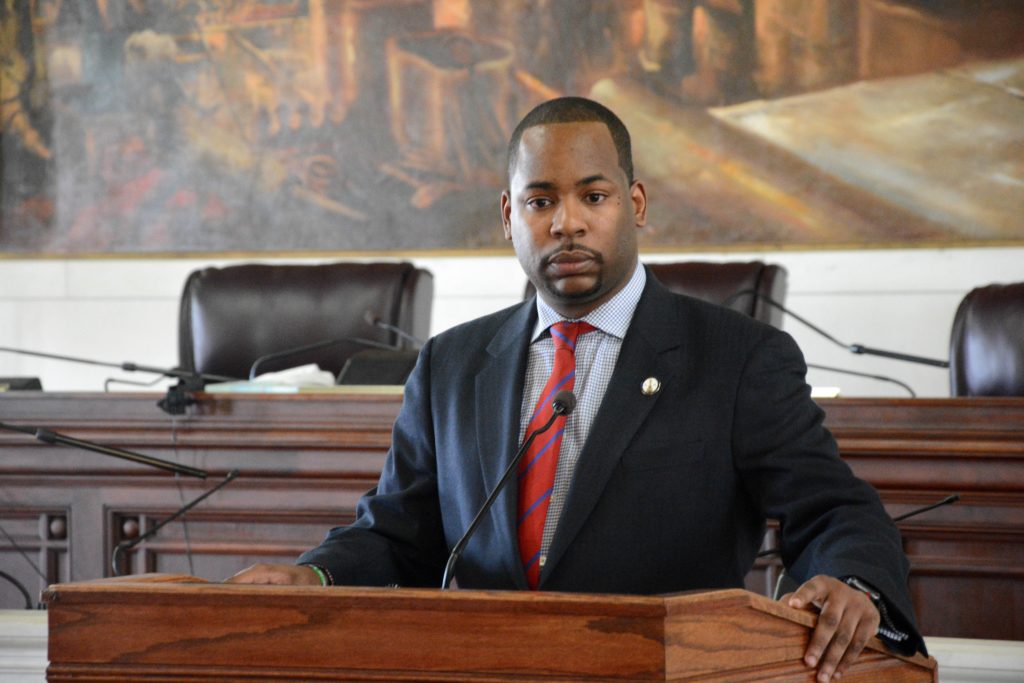The Wrongheadedness of Five Trenton Council-members' Princetel Position
Listen to audio version of this article

BY JERELL BLAKELEY
In what can only be considered among the largest economic development blunders in Trenton’s recent history, five of my colleagues on Trenton’s City Council recently refused to even consider a development proposal from Princetel, a dynamic technology manufacturer of fiber inter-connect products. Princetel pledged to invest $4 million into an abandoned former Roebling factory and bring 400 jobs to the site.
Their decision has naturally drawn comparisons to the detractors of Amazon’s now withdrawn proposal to build a new campus in New York City. While I believe that reasonable people can disagree about the impact of the Amazon proposal, I am confident that this recent decision by five members of Trenton’s City Council may well make them the poster children of anti-business, anti-development, and anti-growth urban politicians. Contrary to their claims about procedural or process difficulties, their decision to reject this proposal out of hand, fundamentally stems from a misguided understanding and a fear of change and gentrification.
My antecedents fled the South and came to Trenton for one reason and one reason only: economic opportunities The Trenton they arrived to was thriving, prosperous and teeming with increased economic opportunities. I can still recall my grandparents saying how you could quit a job in the morning and have a better one that afternoon.
That Trenton is gone. Trenton has an unemployment rate that is double the state average and a median salary that is a fraction of the county median. The city requires millions of dollars in state aid to maintain basic services and our property tax rates are among the highest in New Jersey, a state with the highest property tax rates in the country. In our recent tax reevaluation, the value of city property dropped dramatically. Presently, Trenton is an island of poverty in a sea of affluence, in part due to poor economic development decisions like the one my colleagues on Council just made related to the Princetel proposal. This must change for Trenton to change. Instead of being welcoming of a much needed external investment, five of my council colleagues would not even permit the Princetel proposal to be placed on the council docket in favor of maintaining the status quo.
Obviously, the status quo is not working. Trenton’s fundamental problem is the city’s level of intense poverty and a lack of a stable, growing tax base. Newly minted Trenton Mayor Reed Gusciora understands this and has been fighting valiantly to bring redevelopment projects to the city. He understands that Trenton will never transform into a safer and more dynamic city without it growing and attracting jobs and development. People rarely rob someone on their way to work.
The five council members who voted to not consider the Princetel proposal don’t get it. They are skeptical of development and seem satisfied with Trenton’s reputation as one of the region’s most unattractive places to do business. They are concerned that the litany of redevelopment projects that Mayor Guscoria is attempting to attract is a harbinger of Trenton turning into another bastion of gentrification.
Their fears are misguided. At its height 60 years ago, during the postwar boom Trenton had more than 125,000 residents. Trenton currently has barely has 85,000 residents. That means that Trenton has room for nearly 50 percent more people without displacing a single existing Trentonian. Indeed, many recent developments in Trenton have transformed many long standing abandoned factories into state of the art residential and commercial properties.
As I travel throughout the city, Trentonians of all races and backgrounds decry the lack of opportunities, crime, poor public services, and the precious few amenities that remain here. Unfortunately, Trenton and its long suffering residents are intimately familiar with the manifestations of poverty; crime, low educational test scores and stunted economic development. If partial gentrification results in the increase of city property values, the attraction of middle class residents, and new businesses and jobs, I say stop my colleagues stop the fear mongering around gentrification. We know the alternative all too well!
Trenton must change, evolve and expand to transform. Trenton must attract new businesses and developments to provide our citizens with a better quality life and expanded municipal services. The current model of relying on millions of dollars of state aid and continuing to increase the tax burden on Trenton’s existing residential and commercial tax base, is a failed philosophy. Trenton’s political leaders must think of ways of attracting more companies like Princetel and increasing ratables to make Trenton a more attractive place to live, work and play.
We must reject the neo-Luddism of politicians who would rather Trenton stay impoverished rather than attract new businesses and residential projects. My colleagues’ recent decision to reject consideration of the Princetel redevelopment proposal is a clear indication, that while there might be currencyfor some politicians to maintaining the economic and political status quo in urban cities, it’s clearly not to the benefit of the people who live and toil here.
If we don’t make better choices, we will continue to read press releases similar to the one published just today by Hamilton Township Mayor Yaede. The title of that press release is “Hamilton Looks To Attract New Princetel Facility Following Trenton’s Rejection of Company’s Redevelopment Plan”.
Jerell Blakeley is a Trenton native and resident who is serving his first term as a Trenton City Councilman-At-Large.





